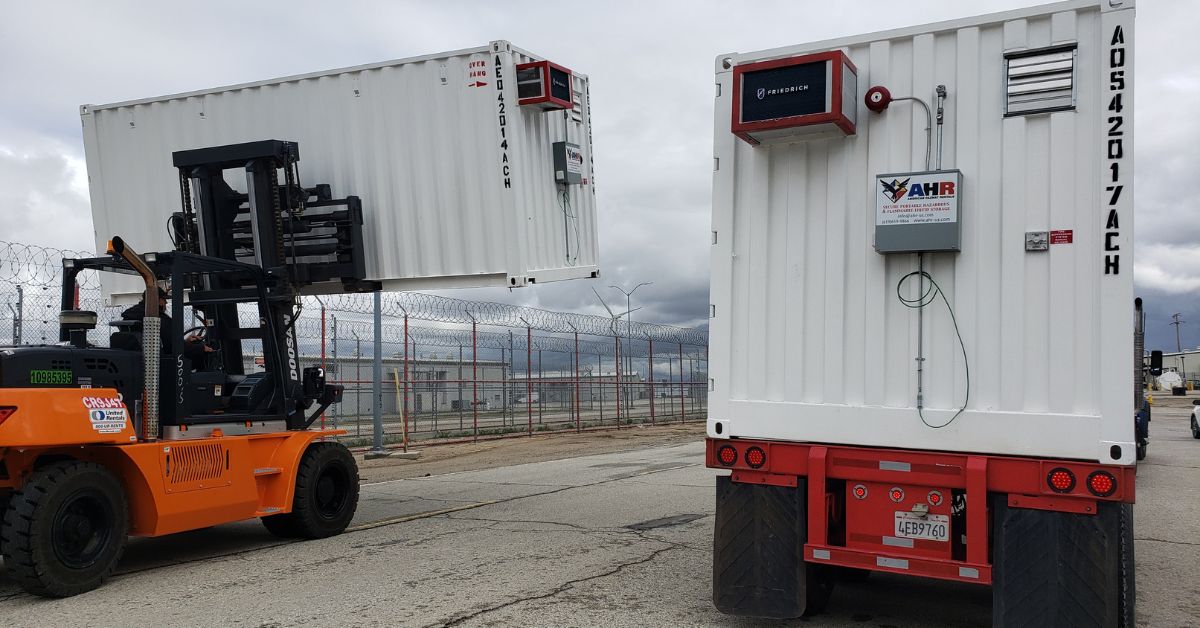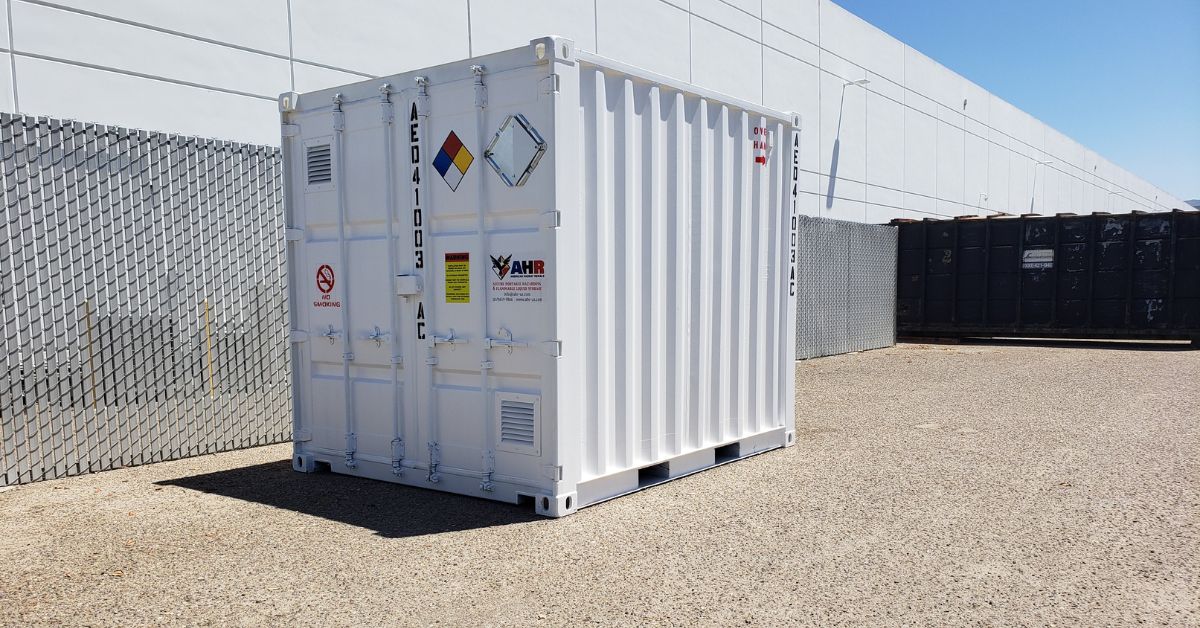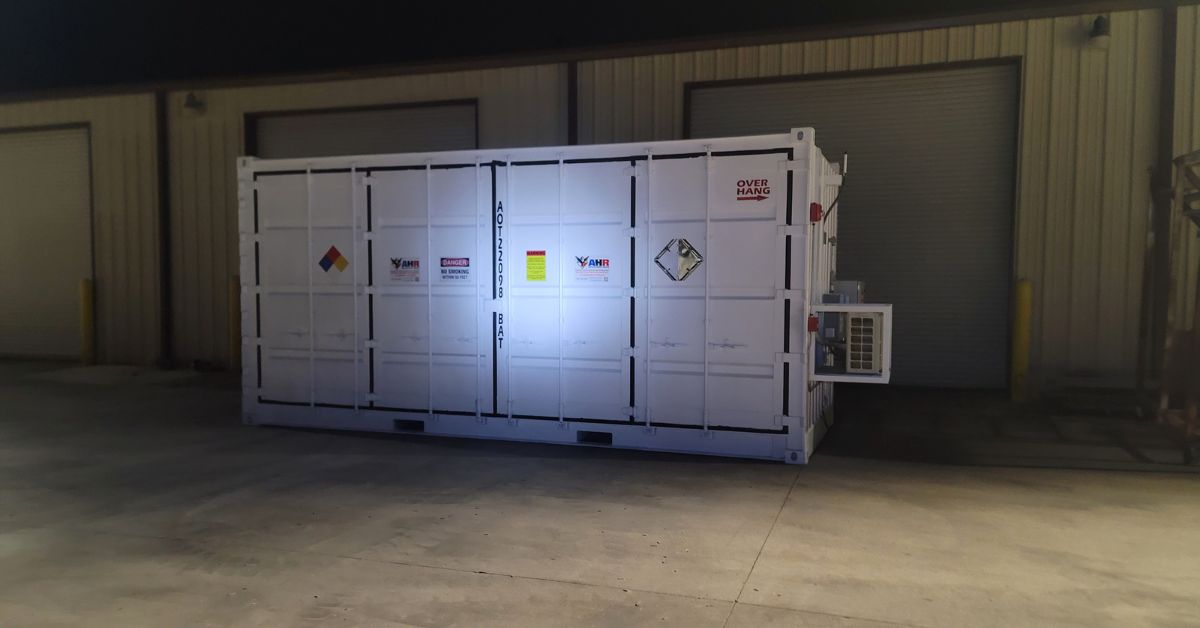
Chemical storage becomes significantly more complex once you move beyond the reach of infrastructure. Off-grid jobsites often operate without access to electricity, running water, or emergency services, yet they still handle hazardous materials that require strict oversight. These conditions demand durable, self-sufficient storage systems designed for safety and resilience.
This guide explains what you should know about off-grid chemical storage, so you can ensure stability for your materials and protect your work environment.
Off-Grid Conditions Require Self-Sufficient Storage
Storing chemicals safely in an off-grid setting isn’t as simple as relocating a standard chemical storage buildings or container. When you don’t have access to basic utilities, every storage element needs to function independently. That means your containers must be able to regulate internal conditions, resist corrosion, and provide security.
For instance, without traditional power sources, ventilation must either be solar-powered or use battery-driven systems to keep flammable vapors or toxic fumes from accumulating. In remote areas with extreme heat or cold, climate control becomes critical. Some chemicals degrade or become volatile if stored outside their safe temperature range.
Harsh Environments Demand Durable Containers
Off-grid locations often present environmental extremes that increase the likelihood of chemical spills, degradation, or equipment failure. In desert regions, soaring daytime temperatures and intense UV radiation can cause materials to break down faster. In coastal or humid environments, rust and corrosion become more likely. In mountain or tundra regions, frigid conditions may render some materials unusable or explosive if frozen.
That’s why any container used for chemical storage in remote environments needs to be durable. Choosing double-walled construction is a good start, but you’ll need additional protection. American Hazmat Rentals provides off-grid-ready containers with rugged exteriors, industrial-grade locks, and reinforced corners. Our containers can survive both rough transport and harsh weather.

Regulatory Compliance Still Applies
Operating in a remote location doesn’t free you from compliance obligations. Federal, state, and local regulations still apply to chemical storage. In fact, off-grid sites often require extra scrutiny due to the increased potential for environmental harm in remote ecosystems.
Know the Rules
The Environmental Protection Agency’s Spill Prevention, Control, and Countermeasure (SPCC) regulations require facilities storing more than 1,320 gallons of oil or petroleum products to maintain comprehensive spill prevention plans.
OSHA’s Hazard Communication Standard (HazCom) mandates that all chemical storage locations maintain proper labeling, safety data sheets (SDS), and employee training programs. Remote sites cannot claim exemptions from these requirements solely because of their isolation.
State and local regulations often impose additional requirements that may be more stringent than federal standards. For example, some states require special permits for hazardous material storage in environmentally sensitive areas, while local fire codes may mandate specific container types or spacing requirements.
Find an Expert
You can ensure compliance by working with experts. American Hazmat Rentals provides storage containers that are regulation-ready, making compliance easier for teams working in remote areas. Key compliance features to look for include:
- Built-in secondary containment to prevent soil and groundwater contamination
- Weather-resistant signage and labels that remain legible in harsh conditions
- Fire-resistant construction that complies with flammable material storage codes
- Chemical segregation options for storing incompatible materials
- Tamper-proof locks and access controls for security compliance
On-Site Safety Must Be a Top Priority
Off-grid operations often lack immediate access to emergency response services. That delay makes proactive safety planning essential. You must store chemicals in a way that protects personnel, assets, and the environment in case of an accident. That means equipping every storage unit with spill kits, fire extinguishers, eyewash stations, and emergency signage.
Security is another major concern. Off-grid sites frequently leave storage units vulnerable to theft, vandalism, or unauthorized access. Storage containers need reinforced, lockable doors and should ideally support camera or sensor monitoring, even if only through solar-powered, motion-triggered devices. Remote monitoring capabilities are immensely beneficial, allowing managers to receive alerts if internal temperatures spike or a door opens.
Know Which Chemicals Require Extra Precautions
Chemicals do not all respond the same way to off-grid conditions. Fuels, industrial solvents, fertilizers, and oxidizers are common in remote worksites, but each type comes with different handling and storage requirements.
For example, diesel fuel and gasoline are highly flammable and need a storage site away from ignition sources. Agricultural chemicals in pesticides or fertilizers can release fumes or become chemically unstable when stored improperly. Some water treatment chemicals, such as chlorine or pH regulators, are highly reactive and need cool, shaded storage.

Don’t Cut Corners on Delivery and Setup
Logistics is another key factor when working in off-grid environments. Remote jobsites are often miles from paved roads or standard loading zones. Moving and placing a chemical storage container in these areas requires experience and specialized equipment.
You want a provider who understands not just how to deliver the unit but also how to set it up for optimal safety and compliance. American Hazmat Rentals coordinates end-to-end delivery and can advise your team on ideal placement for safety, security, and accessibility.
Plan for Efficient and Long-Term Use
Remote projects often operate under tight budgets and strict timelines. Every piece of equipment brought to a site must add value, reduce risk, and improve your workflow.
Choosing the right storage solution upfront can save you thousands of dollars in fines and lost productivity. A high-quality, off-grid-ready container helps prevent delays caused by chemical spoilage, environmental violations, or equipment failure. Self-contained units that require minimal maintenance also reduce the need for constant on-site oversight, freeing up your crew to focus on core operations.
Proper chemical storage also plays a role in protecting the environment. Without the correct containment measures, chemicals can leak or spill into surrounding areas, causing harm to both wildlife and ecosystems. Placing containers near sensitive areas such as water sources or residential neighborhoods can increase the risk of environmental contamination and potential legal repercussions.
What you should know about off-grid chemical storage is that every detail matters. From environmental risks to regulatory compliance, your chemical storage solution must cover all the bases without relying on external infrastructure. Choose American Hazmat Rentals when you need rugged, dependable, regulation-ready chemical storage solutions.